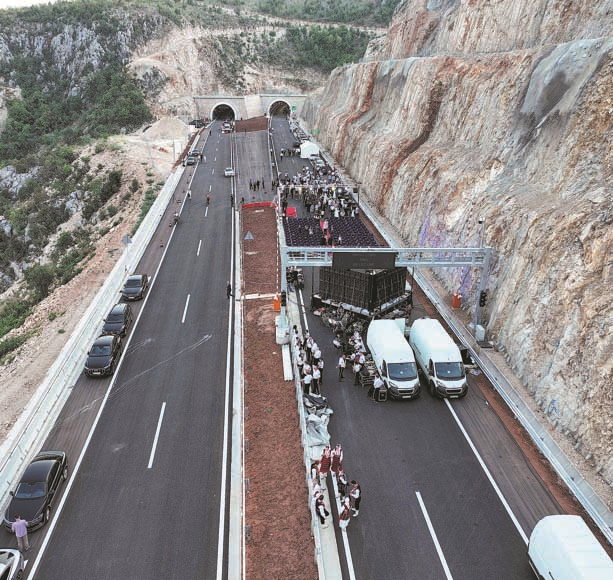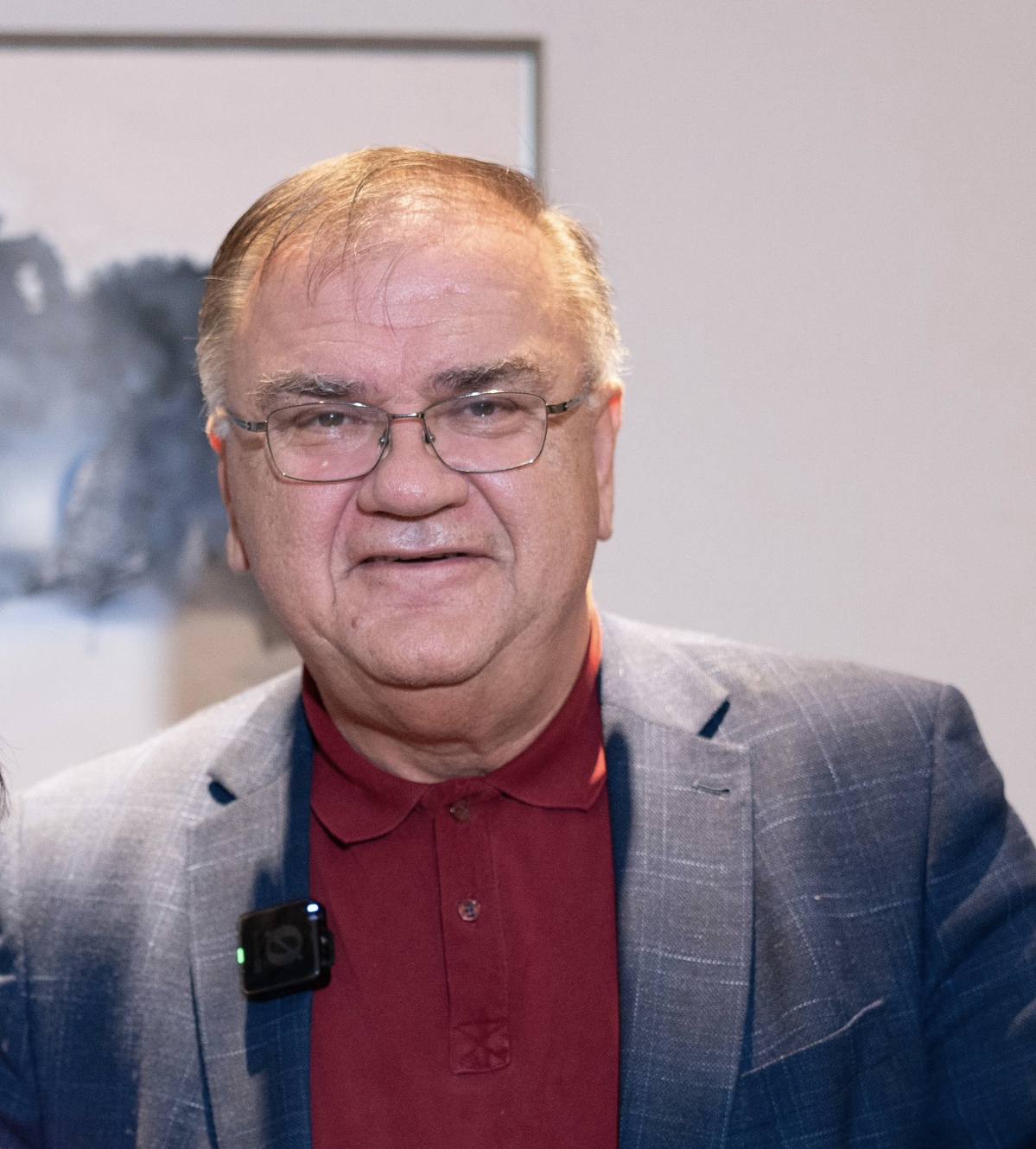
Staff members prepare for the opening ceremony of the Pocitelj-Zvirovici subsection of the pan-European Corridor Vc Highway in Capljina, Bosnia and Herzegovina, on Sept 4. This highway was opened to the public on Sept 5. YIN XIAOSHENG/XINHUA
Had it not been for the Belt and Road Initiative, many countries would have had little to look forward to from the rest of the world, former member of the presidency of Bosnia and Herzegovina Mladen Ivanic said.
Speaking exclusively to China Daily, Ivanic, who is in China to attend the 30th anniversary of the Beijing Art and Media Vocational College, said the BRI offers developing countries the opportunities to modernize and grow.

Former member of the presidency of Bosnia and Herzegovina Mladen Ivanic. [Photo provided to China Daily]
Comparing China's approach with that of traditional Western institutions, he said, "There is just a World Bank with some sort of investments, but it's relatively costly and always under political conditions. In the case of China, there is no political pressure. This is just cooperation of different countries."
He said some Central Asian countries might still be struggling without the support of China's BRI. "I really believe this is a very good initiative. This is a real chance for development," Ivanic added. "Last year marked its 10th anniversary, and I hope it continues for many years."
According to him, the initiative was more than just about building roads and railways, but also about creating lasting changes that help countries break free from poverty and isolation.
The results of China's cooperation with Bosnia and Herzegovina are already visible. Ivanic recalled that until 15 years ago, the country "didn't have a single kilometer of highway", noting the significance of China's involvement in addressing the country's infrastructure challenges. "Now we are in a real effort to invest in that area," he said. "We don't have money. So cooperation with countries like China is very useful because Chinese companies can build the roads and they can also finance that."
In September, the Pocitelj-Zvirovici subsection of the pan-European Corridor Vc Highway was completed and opened. The China-built project marks Bosnia and Herzegovina's first north-south highway and is expected to significantly enhance connectivity, trade and regional economic growth.
In 2023, bilateral trade between China and Bosnia and Herzegovina hit $362 million, a 17.6 percent increase compared to the previous year.
With the country continuing to develop its infrastructure, Ivanic highlighted the importance of expanding cooperation with China in other sectors, particularly energy. Advocating greener, more sustainable sources of energy, he stressed the need to diversify the country's energy mix, especially given its abundant water resources.
Drawing on China's expertise in hydropower, Ivanic expressed the hope that Chinese investment in this sector will help Bosnia and Herzegovina transition to cleaner energy sources.
Ivanic pointed to a thermal power plant built in collaboration with a Chinese private company, describing it as "a good example of private investment working alongside Chinese support, sending a strong signal for other countries in the region that this can be done".
When it came to the geopolitical environment, Ivanic warned that "after this conflict in Ukraine, you have basically a conflict between Russia and the West, which is very dangerous". He further emphasized that China can play a stabilizing role in this divided world. "The modern world is multipolar," he said, stressing that cooperation among multiple nations is crucial for global stability.
Despite some tensions in global trade, particularly with the European Union raising tariffs on Chinese electric vehicles, Ivanic still saw opportunities for continued cooperation. "Bosnia and Herzegovina is a European country, but not an EU member," he said. As a result, the country's unique position allows it to act as a bridge between China and the European market, he said.
Looking back on his first trip to China 24 years ago, he is deeply impressed by the significant improvements in infrastructure quality. "I remember when I drove from Beijing to Hebei, the roads were terrible. Now, China's roads are state-of-the-art. The improvement in road quality is amazing, and that's a real success."
"The biggest achievement of China is the fight against poverty. The benefits of economic development are reaching ordinary citizens, not just a small group. China has succeeded in that, which is not easy, and it offers a lesson for other countries," he added.
Ivanic advocated the key role of cultural diplomacy in rebuilding Bosnia and Herzegovina, noting that cultural exchanges, such as theater and music, are essential in reconnecting people.
In his views, cultural diplomacy is often more effective than traditional diplomacy in fostering understanding and friendship.
Ivanic commended China's efforts in promoting cultural exchange, especially through the Confucius Institutes in Bosnia and Herzegovina, which help people learn about China and its culture.
Source: Chinadaily